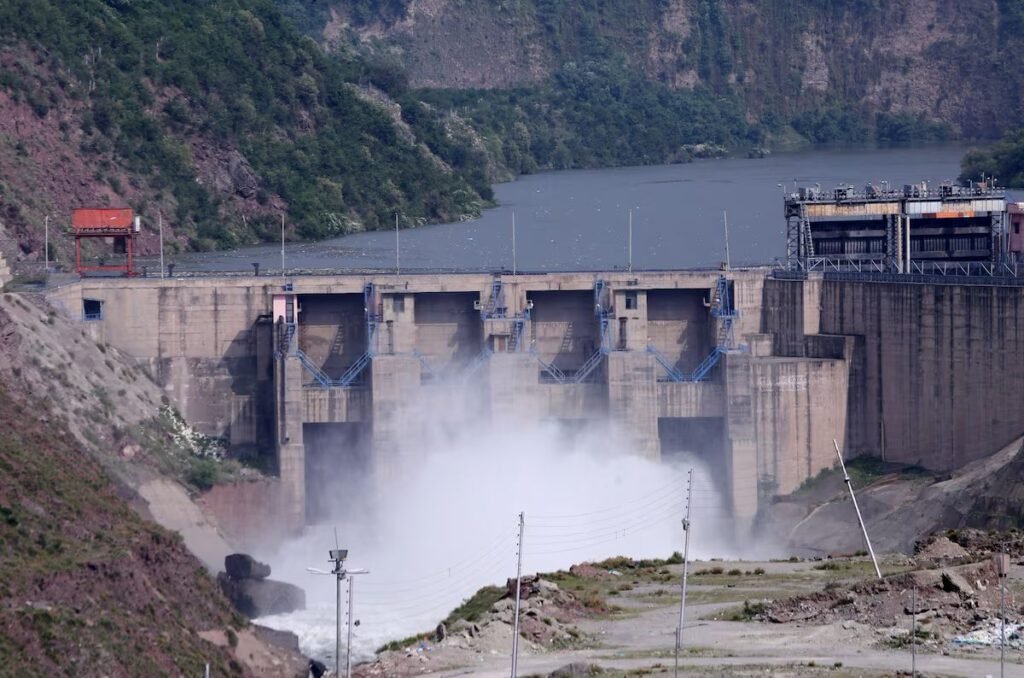In a recent development, the Ministry of External Affairs (MEA) of India has announced that the water treaty with Pakistan will remain suspended. This decision, conveyed by MEA spokesperson Randhir Jaiswal, has garnered attention due to its implications on bilateral relations between the two neighboring countries, as well as its potential impact on water resources management in the region. To understand the gravity of this announcement, let’s explore the context of the water treaty, the reasons behind the suspension, and the consequences it may hold for both nations.
Understanding the Water Treaty
The Indus Waters Treaty, signed between India and Pakistan in 1960, governs the sharing of water from the Indus River system, which includes the Indus River and its tributaries. The treaty was brokered by the World Bank and has stood the test of time despite several wars and conflicts between the two countries. It allocates the waters of the three eastern rivers (Ravi, Beas, and Sutlej) to India, while Pakistan has rights to the western rivers (Indus, Jhelum, and Chenab).
The treaty has generally helped to maintain a degree of cooperation between the two countries on water-sharing issues, which are crucial for the agricultural sectors and overall water supply. However, recent geopolitical tensions and national security concerns have raised questions about the future of this agreement.
Reasons Behind the Suspension
While the exact reasons for the suspension of the water treaty have not been fully disclosed, there are several factors that likely contribute to this decision:
• Heightened Tensions: Over the past few years, tensions between India and Pakistan have escalated, especially after the 2019 Pulwama attack and subsequent military actions. Water-sharing agreements have often been used as a political tool, and any significant disagreement or conflict has the potential to affect them.
• Pakistan’s Actions on Terrorism: India has repeatedly raised concerns over Pakistan’s alleged support for terrorism, particularly in Jammu and Kashmir. In response to these concerns, India has expressed its intent to use the suspension of the water treaty as a form of diplomatic leverage to hold Pakistan accountable for its actions.
• National Security: In any conflict, control over natural resources like water becomes a significant strategic asset. India may view the suspension of the water treaty as a response to Pakistan’s actions, protecting its own interests in the region, particularly in areas close to the disputed territories.
Implications of the Suspension
The suspension of the water treaty is likely to have far-reaching implications for both countries, as well as the broader region:
• Impact on Agriculture: Pakistan heavily relies on the waters of the Indus system for its agriculture, which forms the backbone of its economy. A suspension of the treaty could result in water shortages, leading to a reduction in crop production and an economic downturn.
• Diplomatic Strain: The suspension of the water treaty will undoubtedly escalate the already strained diplomatic relations between India and Pakistan. This may lead to further isolation of Pakistan on the international stage, while India’s decision may be seen as a direct response to Pakistan’s handling of regional security issues.
• Water Security Concerns: For both countries, the availability of water is a critical issue. A failure to maintain the treaty could lead to a broader water crisis in the region. Given the strategic significance of water for both countries’ survival, such tensions over shared resources could have a long-term detrimental impact on the overall stability of South Asia.
• International Attention: The suspension of the treaty may attract global attention, particularly from organizations like the United Nations and the World Bank, which were involved in the original creation of the treaty. They may intervene in an attempt to mediate and ensure the smooth distribution of water resources.
Looking Ahead: What Does the Future Hold?
It is unclear what the future holds for the Indus Waters Treaty. The suspension of the treaty raises critical questions regarding the future of water-sharing arrangements in a region where resources are already strained. While India’s decision might be motivated by immediate national security concerns, it could also be part of a broader strategy to pressure Pakistan into addressing issues like cross-border terrorism and regional instability.
Given the importance of the Indus Waters Treaty in maintaining regional stability, the international community must remain engaged in encouraging both nations to find a diplomatic resolution to their differences. A breakdown in water-sharing agreements could have severe humanitarian and economic consequences, both for India and Pakistan, as well as for the entire South Asian region.
In conclusion, while the suspension of the water treaty is a significant development, it also opens the door for dialogue and negotiations. Both India and Pakistan will need to work towards ensuring that water continues to flow freely across borders in a way that benefits both nations, without compromising their national interests or regional peace.


